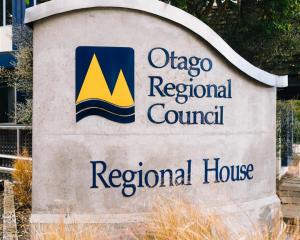A plan proposed by Aurora Energy will have negative effects on the environment and people’s financial wellbeing and health, the Otago Regional Council says.
The electricity network has applied to the Commerce Commission to spend $383 million over the next three years to address safety and reliability issues on its network, which, if approved, would have some Otago households pay more for their power in the coming years to cover the cost.
During a full council meeting last week, regional councillors approved sending a submission, written by deputy chairman Michael Laws on behalf of the council, to the electricity network’s plan.
Aurora’s application to the commission said historical underinvestment had led to more safety incidents and unplanned power cuts.
Its plan to address those issues would involve households in Dunedin facing an average increase of $240 over three years, starting next year. The average increase in Central Otago and Wanaka would be $360 over that time, while in Queenstown it would be $288.
The regional council’s submission said the proposal had come at a time when people could least afford it.
"The impact [of Covid-19] upon the Queenstown-Lakes district has been well publicised, but unemployment and financial hardship is also forecast to rise in Central Otago and Dunedin.
"Welfare, low- and low-middle-income households with families will be particularly challenged."
The council also raised concerns about the potential health effects, writing that people might compensate for the price rise by cutting their electricity use and not heating their homes.
Many houses in the Otago region were of "older construction with inadequate insulation". Reducing heating in those homes could have negative health effects, particularly for the young, sick and elderly, the submission said.
The regional council, which is responsible for managing air quality, said Otago had a long-established problem with air quality and Aurora’s proposal could affect people’s financial ability to switch to cleaner energy alternatives.
The submission said the primary cause of poor air quality in areas around Otago was the combustion of wood and coal for home heating purposes.
A new National Environmental Standard for Air Quality, expected to come into effect within a year, was likely to increase regulation of inefficient burners, ban coal and place stricter standards on burner emissions, making it important that alternatives to fuel burners were accessible and affordable, the submission said.
The council asked the commission to explore the contribution that the Dunedin City Council — whose holdings company owns Aurora Energy — could make to reduce the financial demands on Otago consumers.
During the meeting, Cr Marian Hobbs said she felt she could not vote for the submission because it had not gone through a process with council staff. Chairman Andrew Noone decided to abstain because he had been an elected member of the city council for many years and felt it would be "awkward" to vote. All other councillors voted in favour.
The Commerce Commission will assess Aurora’s investment plan following the consultation process and is expected to announce its draft decision on the proposal in November, with a final decision on March 31 next year.












